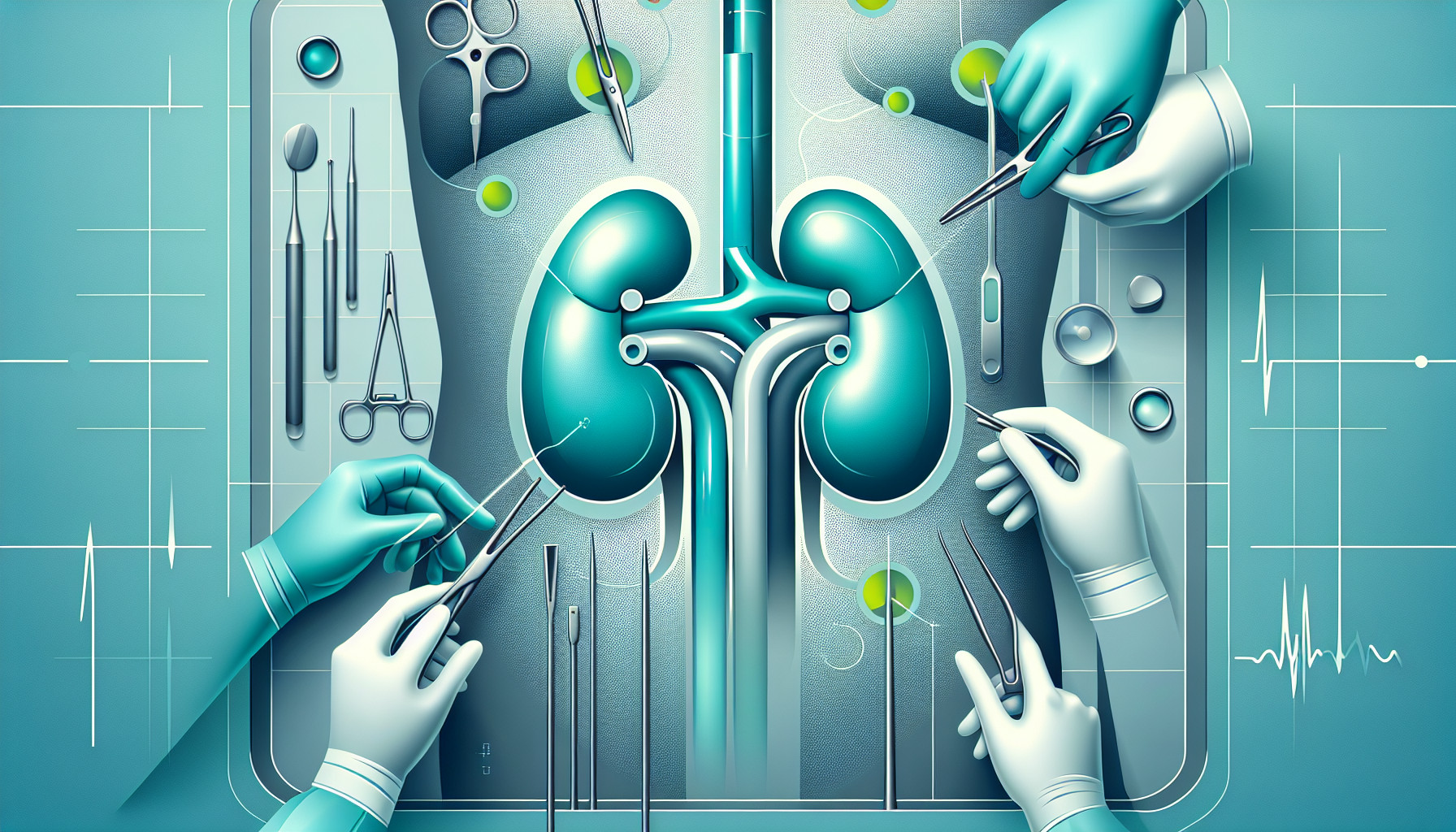Our Summary
This research paper is about a common complication that often occurs in people who have had a kidney transplant, called hyperkalemia. Hyperkalemia is a condition where there is too much potassium in the blood, which can lead to dangerous heart rhythms.
There are several reasons why this can happen after a kidney transplant. It could be a side effect of certain medications, or it could be due to problems with how the kidney filters waste from the blood (glomerular filtration rate), problems with the tubes in the kidney (tubular dysfunction), or issues with how the kidney handles sodium.
The paper discusses the causes and effects of hyperkalemia, and it also provides updates on how to manage this condition, particularly in people who have received a kidney transplant.
FAQs
- What is hyperkalemia and how is it related to kidney transplants?
- What are the causes of hyperkalemia post kidney transplant?
- What are the updates in managing acute and chronic hyperkalemia in kidney transplant recipients?
Doctor’s Tip
One helpful tip a doctor might tell a patient about kidney transplant is to carefully monitor their potassium levels and follow a low potassium diet to prevent hyperkalemia, a common complication post-transplant. It is important to stay in close communication with the transplant team and report any symptoms of high potassium levels, such as weakness, fatigue, or irregular heartbeat, immediately. Regular blood tests and medication adjustments may be necessary to manage potassium levels effectively.
Suitable For
Patients who are typically recommended for kidney transplant are those with end-stage renal disease (ESRD) who have failed conservative management options such as dialysis. Candidates for kidney transplant may also include those with chronic kidney disease (CKD) who are at high risk for progression to ESRD. Additionally, patients who are young, otherwise healthy, and have a good support system are often considered good candidates for kidney transplant.
Timeline
Before kidney transplant:
- Patient is diagnosed with end-stage renal disease and placed on the waitlist for a kidney transplant.
- Patient undergoes extensive medical evaluations, including blood tests, imaging studies, and consultations with various specialists.
- Patient undergoes dialysis to manage their kidney failure while waiting for a suitable donor.
- Patient receives notification of a matching donor and undergoes surgery for the kidney transplant.
After kidney transplant:
- Patient is closely monitored in the hospital for any signs of rejection or complications following the transplant surgery.
- Patient is started on immunosuppressive medications to prevent rejection of the new kidney.
- Patient may experience side effects from the immunosuppressive medications, such as increased susceptibility to infections and electrolyte imbalances.
- Patient undergoes regular follow-up appointments with their transplant team to monitor kidney function and adjust medications as needed.
- Patient may experience episodes of hyperkalemia, a common complication post-kidney transplant, which requires close monitoring and management to prevent serious complications.
What to Ask Your Doctor
What are the common causes of hyperkalemia in kidney transplant recipients?
How often should I have my potassium levels monitored after a kidney transplant?
Are there any medications I should avoid that could potentially increase my risk of hyperkalemia?
What dietary changes should I make to help prevent hyperkalemia post-transplant?
What symptoms should I watch out for that may indicate hyperkalemia?
How is hyperkalemia typically treated in kidney transplant recipients?
Are there any lifestyle changes or supplements I should consider to help manage my potassium levels?
What is the long-term outlook for managing hyperkalemia after a kidney transplant?
Are there any potential complications or risks associated with hyperkalemia in kidney transplant recipients that I should be aware of?
Is there anything else I should know about managing hyperkalemia post kidney transplant?
Reference
Authors: Almalki B, Cunningham K, Kapugi M, Kane C, Agrawal A. Journal: Transplant Rev (Orlando). 2021 Apr;35(2):100611. doi: 10.1016/j.trre.2021.100611. Epub 2021 Feb 27. PMID: 33711778
